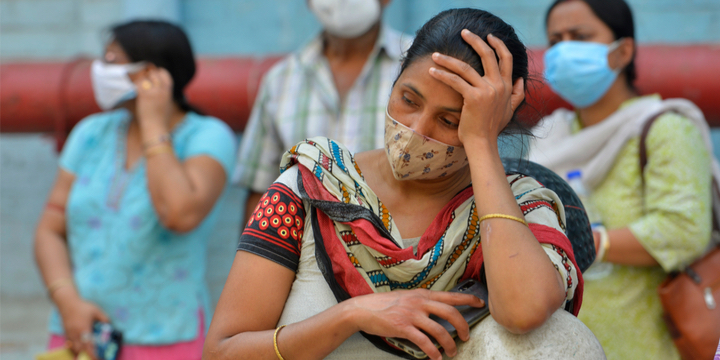India has recorded more than 45,000 cases of “black fungus,” a 50% fatal fungal infection that is spreading among patients who have been diagnosed with Covid, in the past two months.
More than 4,200 people have died of mucormycosis, a disease usually rare, but which has spread in India among Covid-19 patients after their recovery, Deputy Minister of Health Bharati Pravin Pawar told the Council on July 20. Indian parliament.
To read also: India: is the “Indian” variant responsible for the epidemic outbreak?
A particularly fatal disease
The death rate from this very aggressive fungal disease exceeds 50%. This has forced surgeons to have some patients’ eyes, nose and jaw removed to prevent infection from reaching the brain.
According to the government, the state of Maharashtra (west) is the most affected with 9,348 cases.
India recorded only 20 cases of mucormycosis per year before the Covid-19 pandemic. This disease particularly affects immunocompromised people who have too high a blood sugar level, who have AIDS or who have had organ transplants.
A spectacular epidemic
Experts have attributed the dramatic rise in mucormycosis cases to overuse of steroids to treat Covid-19 patients.
In May, the Indian government declared a state of epidemic for mucormycosis as the number of cases began to explode. Government figures show the number of infections peaked in May and June before dropping significantly.
Social networks were then inundated with desperate calls for treatments to cure this disease. Subsequently, the newspaper Hindustan Times (in English) reported on July 21 a significant drop in the number of cases in the densely populated city of Mumbai.
 Cherry tomatoes contaminated with salmonella: 92 sick and 1 dead
Cherry tomatoes contaminated with salmonella: 92 sick and 1 dead  A better coaching method can make a person grow
A better coaching method can make a person grow  What is the method to prevent diabetes in children?
What is the method to prevent diabetes in children?  What are the effective factors in causing stomach ulcers?
What are the effective factors in causing stomach ulcers?  Why do embarrassing memories seem to appear at night?
Why do embarrassing memories seem to appear at night?  The amazing link between SARS-CoV-2 infection and newly started diabetes
The amazing link between SARS-CoV-2 infection and newly started diabetes  WHO says monkey pox is not a global emergency right now
WHO says monkey pox is not a global emergency right now  Single cell RNA sequencing uncovers new mechanisms of heart disease
Single cell RNA sequencing uncovers new mechanisms of heart disease  Hepatitis of unknown origin: 3 new deaths and 228 cases worldwide
Hepatitis of unknown origin: 3 new deaths and 228 cases worldwide 